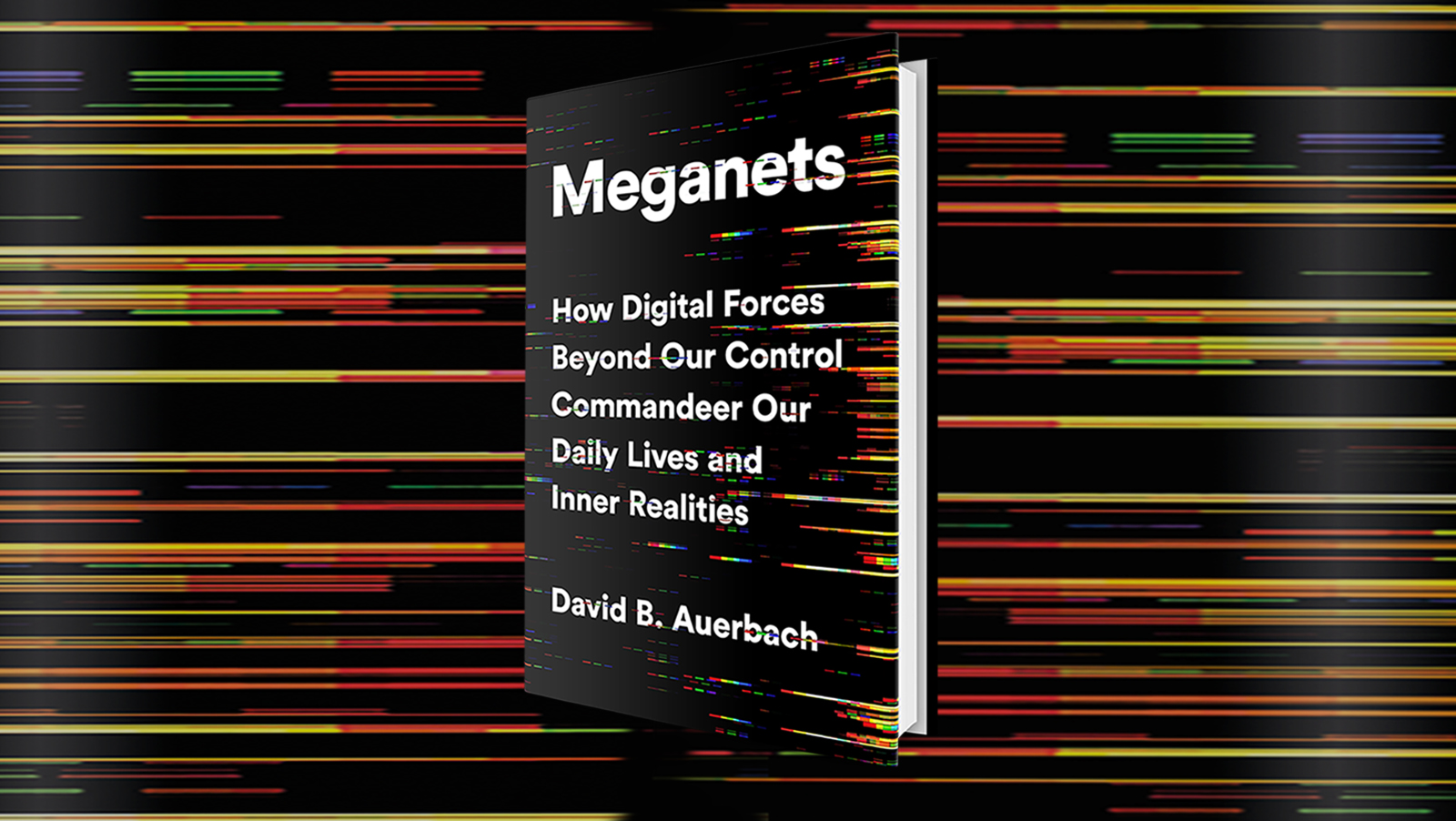You think someone’s in control of the internet. You couldn’t be more wrong.

It’s official: Silicon Valley Bank, which lent to over 2,500 startups and some of the biggest names in tech, has run out of money. Last week, the Federal Deposit Insurance Corporation took over the company, and early this week, regulators announced they would ensure that all deposits at SVB and another failing bank would be repaid 100 cents on the dollar.
It’s a seismic development — SVB was the 16th largest bank in the country — and another shock to the tech world, which is already in turmoil after the laying off of tens of thousands of workers over the past few months. Amidst that chaos, calls continue to grow for lawmakers to step in and stabilize the industry by regulating companies like Facebook.
Proponents of government action argue that greater oversight and stricter laws could curb some of the most dangerous uses of the internet, like the rise of COVID denialism and the genocide in Myanmar. They hope that the world wide web can be regulated in the same way as other sectors, like manufacturing and banking.
But there’s one catch: No one is really in control of the internet — not even the executives at Alphabet, Amazon, Apple, Meta, Microsoft, or Facebook.
We’re all trapped by the complex, intertwined digital world that David Auerbach calls the “meganet.” In his newest book, Meganets: How Digital Forces Beyond Our Control Commandeer Our Daily Lives and Inner Realities, the former Microsoft and Google software engineer explains why our current internet is a runaway train traveling at maximum speed.
1. Meganets are bigger than you can imagine.
Like space, the internet is almost too vast to wrap your mind around. Every day, we produce more computational data than was produced in the entire history of humanity up until 2000.
Autonomous networks like Facebook and Google — meganets — are parts of the internet, yet even they are massive on a scale that’s impossible to fully understand or control. Take Amazon’s online marketplace, which is littered with miscategorized products, items that no longer exist, and third-party sellers listing hyperinflated prices. With hundreds of millions of products on the site, Amazon has no chance of correcting these mistakes, let alone tackling the much larger problem: fraud.
Despite regularly monitoring its platform, Amazon has failed to effectively crack down on fake products or fake reviews. Like with other meganets, there’s so much information being added, modified, and removed that companies cannot keep up with it — even when it materially impacts the company. For example, products under Amazon’s own brand names (like AmazonBasics) are also regularly imitated, showing that the multi-billion-dollar corporation is unable, not unwilling, to fix the problem.
2. Fixing a problem in the meganet can result in disastrous and unforeseen consequences.
There was no shortage of criticism directed at Facebook after the 2016 election. It had been one of the most contentious political seasons in recent U.S. history, and many blamed the company’s algorithm for prioritizing inflammatory content and stoking the partisan flames. So Facebook made a change.
In what was later called “The Facebook Armageddon,” the company deprioritized shared news articles, even those from reputable sources, in the hopes of steering people toward apolitical content instead. This wasn’t an easy decision to make. The company had to abandon many of its online providers in order to make the switch, and the results were catastrophic for online behemoths like BuzzFeed and Mashable, whose views and profits cratered.
Even worse, not only did Facebook’s decision decimate large portions of digital media, but it also failed to achieve its intended function. As you know, hyper-polarizing posts and viral misinformation didn’t end after the 2016 election. They just found new ways to reach their audience. And that’s part of the problem with meganets. Trying to control them can end up causing more harm than good.
3. Computers structure and monitor most of the internet — and they don’t understand humans.
Machines: great at crunching data, quite bad at understanding emotions, sarcasm, and nuance. In fact, they can barely identify the content of most pictures and videos. But since it’s computers that oversee most of the internet, not people, they emphasize the aspects of online interactions that they most easily understand. It’s the “computationalization” of human beings.
This is why you’ll see some companies have migrated away from “two-handed typing,” i.e. text-based posts, and toward “one-handed clicking,” i.e. sharing, resharing, reacting. When you respond with one of six pre-approved emojis or DM a video to your friend, it’s comprehensible for algorithms.
Just look at YouTube, which started as a Google-like search engine. Now, it’s more of a recommendation engine, which is the pinnacle of computationalization. Even if YouTube doesn’t understand the content of what you watch — or why it is that you like watching it — it can guess what other videos might interest you based on the behavior of its other users. The more you accept or reject its suggestions, the better it becomes at tailoring to your needs.
4. Meganets are one twisted knot of byzantine feedback loops.
What you input into a meganet affects what is outputted, and vice versa. Multiply that dynamic across the millions of interactions that occur every day (see point #1), and you have a system whose behavior is impossible to predict. That’s true even for seemingly simple services like search engines.
As Google became the de facto index of the internet, websites began restructuring and tweaking their content in order to trick the company’s ranking algorithm. SEO (search engine optimization) became its own industry, with scores of experts promising to get your content to the top of the hierarchy.
But the end result of everyone trying to game the system is that, instead of being just an observer, Google has become a participant in the internet as well. Online search is now an ongoing, dynamic, and unstable network that can’t be pinned down and isn’t beholden to any authority, not even the company that has created it. With too many people who want too many different things all involved, the best that Google can do is manage the chaos. But managing is far different from controlling.
5. Meganets transform digital realities into real realities.
Nearly everyone is now familiar with cryptocurrencies, digital tokens that have gained (and lost) billions of dollars in recent years. But there are other cyber economies that are just as volatile, showing how meganets create and foster their own financial worlds.
A perfect example is Warcraft, a world-building video game created by Blizzard. A key part of Warcraft is mining gold, which was meant only to be an in-game mechanism for keeping score. But because gold is the currency in which players can buy treasured in-game items, a shadow economy soon developed in which one player would pay another for their gold. In fact, the practice became so widespread that vast gold-mining operations took root, with as many as 400,000 people being hired to play Warcraft for 12, 14, 16 hours a day to gather the digital commodity.
As a result, Warcraft was so flooded with factory-farmed gold that its economy developed chronic, long-term inflation. And when the value of gold plummeted in the virtual world, it also plummeted in the real world, resulting in many of those 400,000 people losing their jobs. So even though Blizzard never intended gold to have real-world value, meganets by their nature seek to grow, spread, and merge.
David Auerbach’s exploration of the phenomenon he has identified as the meganet begins with a simple, startling revelation: There is no hand on the tiller of some of the largest global digital forces that influence our daily lives: from corporate sites such as Facebook, Amazon, Google, YouTube, Instagram, and Reddit to the burgeoning metaverse encompassing cryptocurrencies and online gaming to government systems such as China’s Social Credit System and India’s Aadhaar.
As we increasingly integrate our society, culture and politics within a hyper-networked fabric, Auerbach explains how the interactions of billions of people with unfathomably large online networks have produced a new sort of beast: ever-changing systems that operate beyond the control of the individuals, companies, and governments that created them.
Meganets, Auerbach explains, have a life of their own, actively resisting attempts to control them as they accumulate data and produce spontaneous, unexpected social groups and uprisings that could not have even existed twenty years ago. And they constantly modify themselves in response to user behavior, resulting in collectively authored algorithms none of us intend or control. These enormous invisible organisms exerting great force on our lives are the new minds of the world, increasingly commandeering our daily lives and inner realities.
Auerbach’s analysis of these gargantuan opaque digital forces yield important insights such as:
- The conventional wisdom that the Googles and Facebook of this world are tightly run algorithmic entities is a myth. No one is really in control.
- The efforts at reform - to get lies and misinformation off meganets - run into a brick wall because the companies and executives who run them are trapped by the persistent, evolving, and opaque systems they have created.
- Bitcoin and other cryptocurrencies are uncontrollable and their embrace by elite financial institutions threatens the entire economy
- We are asking the wrong questions in assuming that if only the Facebooks of this world could be better regulated or broken up that they would be better, more ethical citizens.
- Why questions such as making algorithms fair and bias-free and whether AI can be a tool for good or evil are wrong and misinformed
